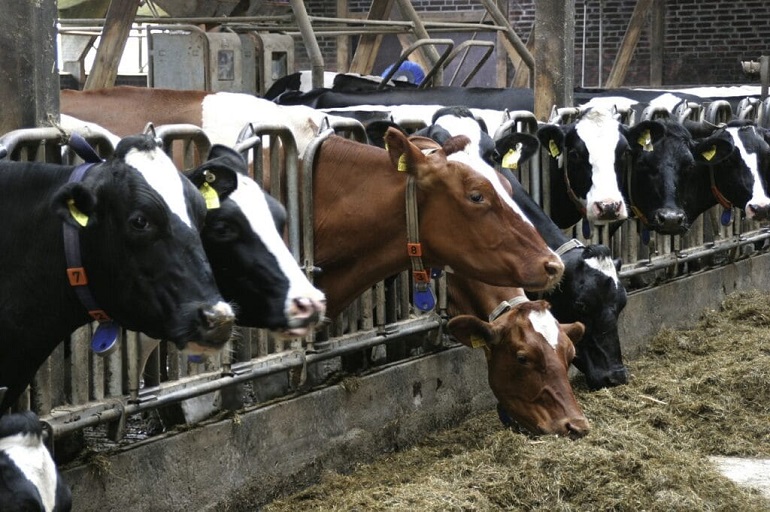
The food industry maintains humanity, providing sustenance and nourishment to millions around the globe. Yet, behind Animal rights beyond politics veil of convenience and abundance, lies a dark reality – the pervasive cruelty experienced by animals within manufacturer farms. As demand for meat, milk, and offspring escalates, so does the intensity of suffering ınduced upon the sentient beings that fuel this industry. From cramped cages to barbaric practices, the narrative of animal cruelty in manufacturer farms is one of exploitation and discount for life. Manufacturer farms, also known as concentrated animal feeding operations (CAFOs), are industrial facilities designed for maximum efficiency in meat, milk, and egg production. These facilities house thousands of animals, often in cramped and unsanitary conditions, where they are subjected to routine mistreatment and neglect. Pigs, chickens, cows, and other livestock endure lives without requiring natural behaviors and basic welfare considerations. Pigs, highly intelligent and social creatures, are minimal to metal gestation crates barely larger than their bodies, unable to finish or express their natural behaviors. Chickens, bred for rapid growth, are jampacked into windowless outdoor garden sheds, suffering from broken your bones and breathing issues due to overcrowding and poor ventilation. Milk cows are repeatedly impregnated to maintain milk production, simply to have their calves taken away shortly after birth, causing immense distress to both mother and kids.
The relentless search for profit within manufacturer farming has dire consequences for both animals and the environment. Overuse of antibiotics to combat disease episodes in jampacked conditions contributes to the rise of antibiotic-resistant bacteria, posing a significant threat to human health. Moreover, the environmental toll of manufacturer farming is staggering, with widespread toxins of air, soil, and waterways due to manure runoff and chemical inputs. Beyond the immediate suffering ınduced upon animals, manufacturer farming perpetuates a cycle of exploitation that extends to human workers as well. Low wages, hazardous working conditions, and psychological strain are commonplace among those employed in the industry, highlighting the interconnectedness of social justice and animal welfare issues. The moral benefits of manufacturer farming are profound, challenging humanity’s meaning compass and calling into question our treatment of sentient beings. As sentient creatures capable of experiencing pain, fear, and joy, animals deserve to be afforded basic legal rights and defenses. Yet, the institutionalized cruelty of manufacturer farming pieces them of their inherent worth, reducing them to just commodities in the search for profit. Furthermore, the disconnect between consumers and the beginnings of their food perpetuates a culture of apathy and indifference towards animal suffering. By turning a oblivious eye to the realities of manufacturer farming, consumers inadvertently perpetuate the cycle of cruelty, enabling the continuation of exploitative practices.
The fight against animal cruelty in manufacturer farms is not without hope. An evergrowing movement of activists, organizations, and moral individuals are advocating for change, demanding transparency and your willingness within the food industry. From grassroots campaigns to what is reforms, there is a groundswell of momentum towards a more thoughtful and sustainable future. Consumer awareness and education play a crucial role in driving change, empowering individuals to make informed choices that align with their values. By supporting moral farming practices and opting for plant-based alternatives, consumers can effectively challenge the status quo and disrupt the cycle of exploitation perpetuated by manufacturer farming. Moreover, what is measures and corporate your willingness initiatives are necessary in holding manufacturer farms accountable for their actions and incentivizing more humane and sustainable practices. By implementing stricter regulations and enforcing moral standards, policymakers can ensure that animal welfare considerations are prioritized within the food industry.
Animal cruelty in manufacturer farms is a sobering reminder of the moral and environmental costs of industrialized agriculture. Behind the smooth packaging and supermarket shelves lie the hidden suffering of countless sentient beings, whoever lives are sacrificed in the name of convenience and profit. However, as awareness grows and momentum builds, there is traumas a whiter future – one where concern triumphs over cruelty, and animals are treated with the dignity and respect they deserve. It is incumbent upon us, as individuals and as a society, to stand up against injustice and advocate for a more thoughtful and sustainable food system. Only then can we truly embody the principles of empathy and moral stewardship towards all living beings.